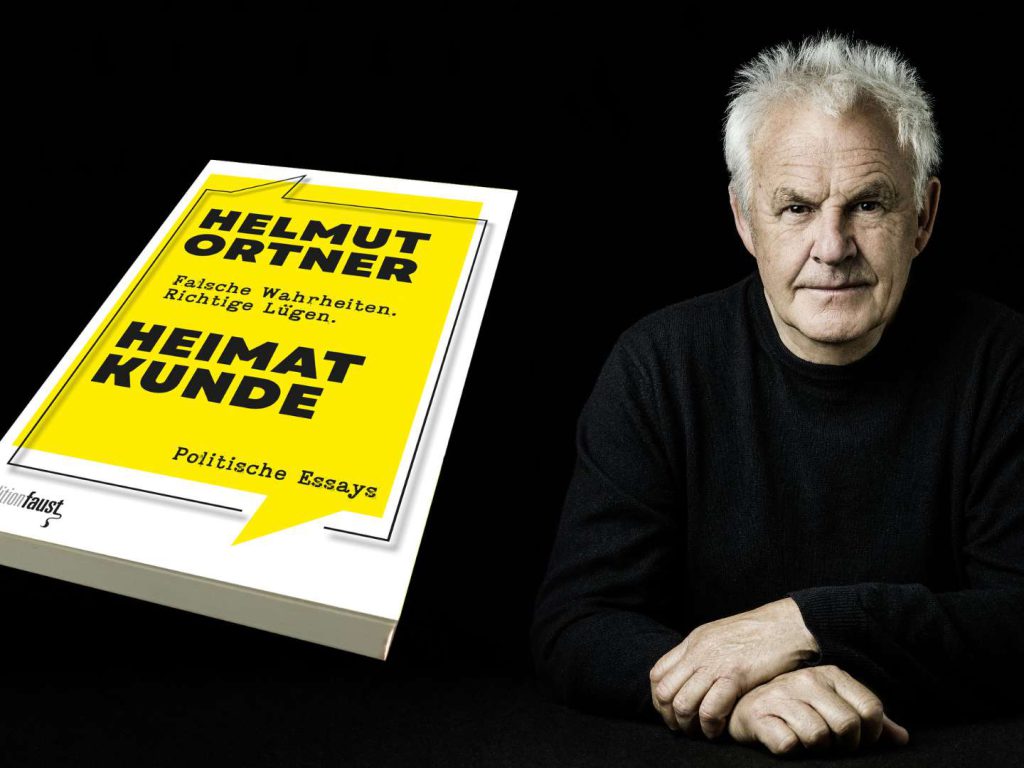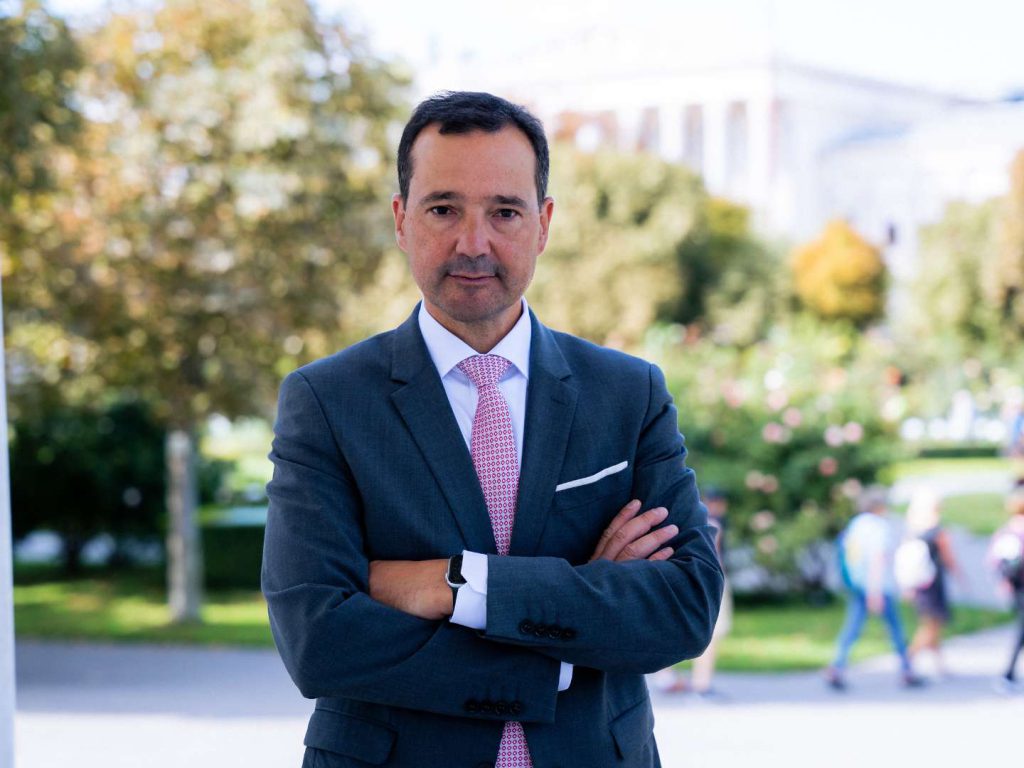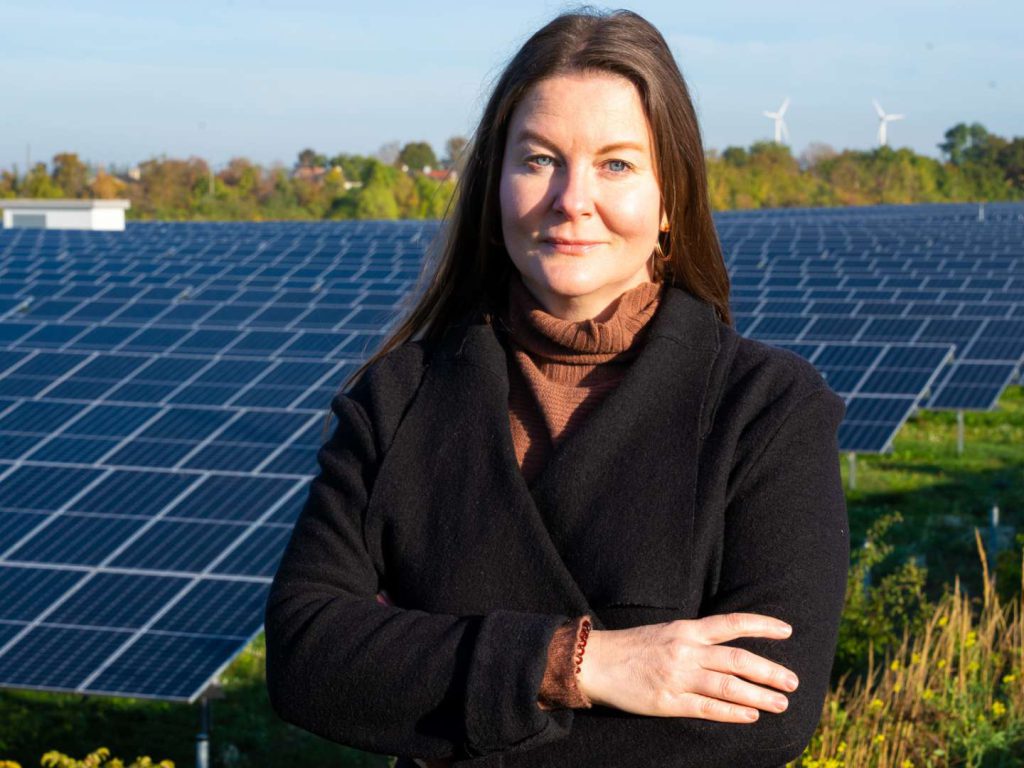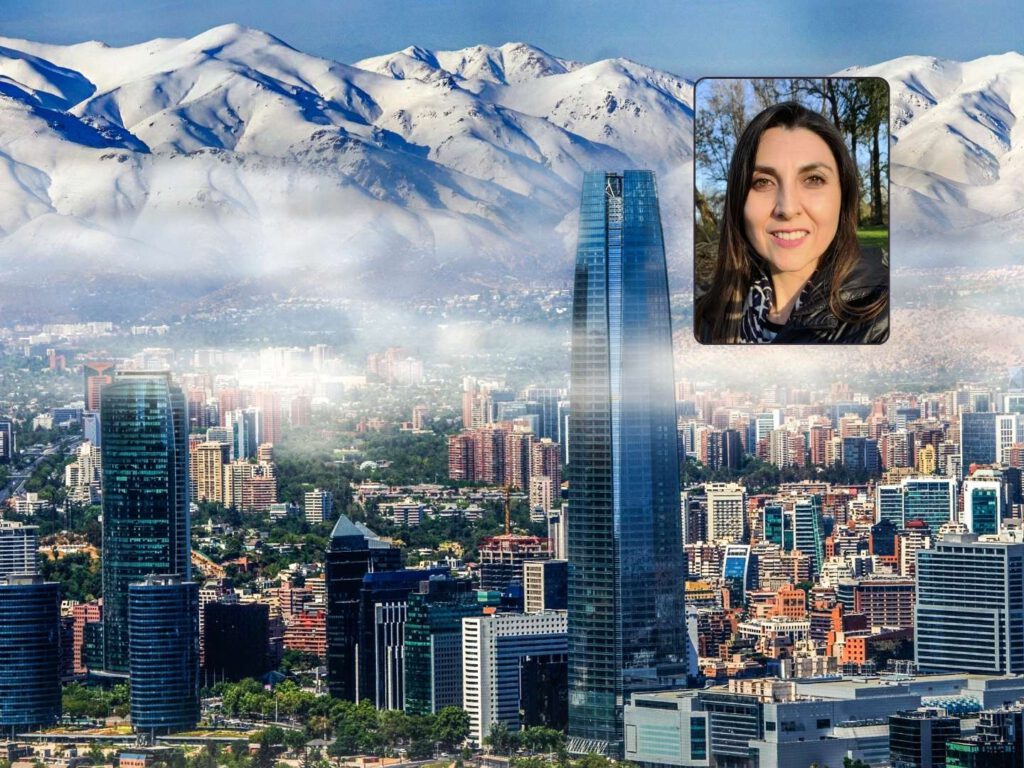Penpa Tsering: „Stop feeding the dragon!“
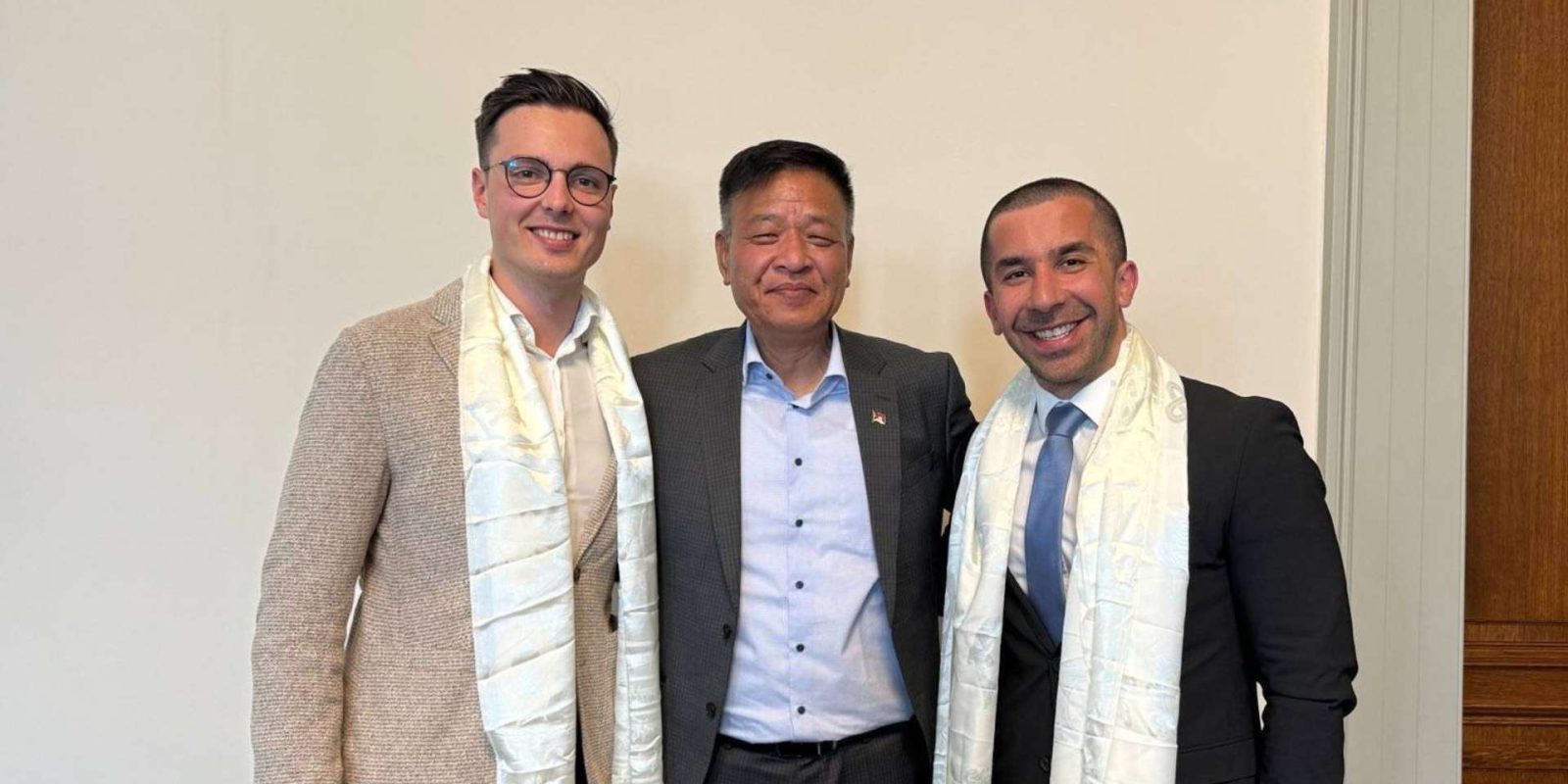
Penpa Tsering is the current Sikyong of the Central Tibetan Administration (CTA), often referred to as the Tibetan government in exile. He has been leading the CTA since May 2021, guiding efforts to advocate for the rights and autonomy of the Tibetan people.
Tsering previously served as the Speaker of the Tibetan Parliament in Exile and has been a prominent figure in Tibetan politics for decades. Our conversation addresses the difficult relations between China and Europe, the ongoing struggle for cultural preservation and political autonomy, and his vision for Tibet.
You are the head of the Central Tibetan Administration, the Tibetan government in exile, but at the same time, Tibet is not an independent democracy. Can you give us a brief overview of the political situation inside Tibet?
The situation continues to be very grave, this is why I keep saying „We are dying a slow death“. What is happening in Tibet is a genocide, because they are striking at the very root of our Tibetan identity: in the form of colonial style boarding schools, where children are kept away from their families, from their culture, from their language, and the Chinese government wants to teach everything. While the whole world is moving towards multi-culturalism, China is the only one who is moving towards uni-culturalism. At the expense of culture and identity of all nationalities, whether it’s the Tibetans, or Uighurs, or Mongols.
We have had 157 self-immolations in Tibet in the last 15 years. These people, who self-immolate, are mostly between the age of 16 to 35. They have never witnessed independent Tibet. They only see what the Chinese government is doing to Tibet and Tibetan people today, and they are driven to this desperate action of burning themselves to death, hoping that the Chinese Government will bring some attention to their cause, or that the international community will come to their rescue.
This sounds dystopian.
Yes, what is happening in Tibet is more like George Orwell’s 1984 coming to reality, where the state controls everything, and the espionage law extends to the grassroots, where everybody is watching over each other and everybody lives in fear, not knowing what to tell other people, not knowing whom to trust. China is the only country that spends more money on internal than external security. They use all kinds of artificial intelligence like iris scanning or facial identification, which manifest the distrust between the rulers and the ruled. This is the present situation politically, but there are other issues of religious freedom and the protection of Tibets environment, which is not only important for Tibet, but for the whole region and also globally.
How do you get your information when information is so restricted in Tibet?
Governments build walls, and China builds firewalls – but people still learn to jump over them. In Tibet, you don’t have Facebook or Telegram or any of the apps we use in the West. The only app you can use is the Chinese app WeChat. So if you call people through this app, they can track you. But if you send messages and hide messages behind messages, you will get through. We also have radio stations like Radio Free Asia, Voice of America or Voice of Tibet from Europe and the US. Of course we don’t talk about all that, but everybody finds their way to get information.
Are there also people fleeing Tibet who can provide information from inside the region?
Many Tibetans used to cross over the Himalayas illegally. From the mid-nineties to 2008 we used to receive between 2.500 to 3.000 Tibetans every year, most of them children left behind in India to study, not knowing whether they will ever meet their families again. In 2008 there was a widespread peaceful demonstration in the whole of Tibet. Since then, Chinese restriction has increased, and the number of people coming into exile has gone down.
During the pandemic, there were about 5–10 people each year, last year we had 47 Tibetans coming out of Tibet. But that does not necessarily mean that they have any information from inside. Sometimes, we get information only after a few months. Because China knows that for the western media, they need evidence for everything. That is also the reason why you need an special visa for Tibet even if you have access to China already, and that’s why they do not allow diplomatic missions to visit Tibet on their own – they are always accompanied by Chinese people. They take you only to places they want you to see.
I would like to talk about foreign policy. The countries of the West want to cooperate with China in areas like climate protection or trade, but there is also the grave human rights situation in China. How can the West navigate this situation?
I think the question is more about who needs who more. Does China need the West and its markets more, or does the West need China? Because at one time, we all believed that if China becomes part of the global community, they will be more responsible, more open, more transparent. The question is now: how much has the West managed to change China? Or is China changing the West through economic means? Why deal with China, if you don’t stand up for the values that you cherish here in Austria? You are a democracy. You have freedom, you have free flow of information. And if you keep making business with China and don’t talk about these issues, than China gets its will. It is more like the free world is advocating or promoting authoritarianism.
It is not very realistic to stop trade with China altogether.
You have this economic disparity. I looked at the numbers of 2021: the EU-27 imported 600 billion US-dollars’ worth of goods and services from China. And you export only 200 billion to China, so you have a trade deficit of 400 billion every single year. So when China has all that money, they spend it on space technology, they spend it on artificial intelligence, quantum computing – everything the West now considers as a threat or competition in the long run. Knowing all that, if you still want to give business to China, not raising the issues of human rights because of economic reasons, you are making China stronger.
But what options do we have?
Nobody is talking about decoupling, because it is not possible. Now, everybody is talking about de-risking. De-risk – but do it in a manner that China does not become stronger than it already is. So that is why, when I visit Europe, some of our friends say „The dragon is biting us“. And I ask them, „Who fed the dragon to make it so strong to be able to bite you?“. It is the United States – just read Kissinger on China –, and Europe, Taiwan, Japan, all of us are responsible for creating this monster.
Is it compatible to have trade relations with China and also talk about the human rights violations there? What should a small country like Austria do in your opinion?
Well, Austria is part of the European Union. That is why China is playing the same game that the colonisers used to play against the colonists: Carrot and Stick. Unfortunately, the European Union does not have a common trade policy. You have to work that out in the interest of Europe, in the interest of the free world, in the interest of democracy – whether we like it or not, it is a fight for ideology between authoritarianism and democracy.
You give money to Ukraine to defend themselves. That’s very important, because if you don’t defend Ukraine, maybe tomorrow it is Austria. Who knows? Now, when you give more business to China, China needs more energy as the „factory of the world“, than they have to buy all this oil from Russia, and Russia keeps sustaining the war in Ukraine.
China, Iran and Russia have good relations between each other. To what extent should European/Austrian foreign policy towards China be linked to that towards Russia and Iran?
Transatlantic unity is important to challenge global authoritarianism. When you talk about this axis of evil, or sometimes they call it CRIN – China, Russia, Iran and North Korea. If you want to make this axis weaker, then economy is the main way to bring China on its knees. Because China is still facing a lot of economic problems: the property market, the unemployment level, bankruptcy in local governments. China is not as monolithic as many people think.
Because of China, North Korea exists. Because of China, Russia is able to sustain the war in Ukraine. And there may be no solid evidence right now, but you can see Chinas hidden hand behind Hezbollah in Lebanon and missiles in Iran. China is now not only talking about its hegemonic ambitions in the region, but global security and economy issues. They want to export their system of government. So now they reach out to the global south – but how much does the global south know about China? Africa is now having serious problems restructuring their loans and payments to China. Also, Brazil or Colombia: they have no understanding of what China is doing around the world. And this is where China gets all its power from. The free world needs a more united effort – otherwise, it will also be threatened.
Do you think China is trying to increase its influence in Europe as well?
Why do you think Xi Jinping is visiting France and then Serbia and Hungary? It was his first visit to Europe after five years. His message in Belgrade was to remind the Serbian people about NATO bombing the Chinese embassy in Belgrade in 1999. Does that help the European Union? You know how Orbán is behaving, and their relationship has gone beyond a strategic cooperation. China is creating division within the European Union. It will be wise – especially for a small country like Austria – for all 27 nations to come together. Only united you have strength against China. I keep hearing „Austria is a small country“, but Austria is also a free country that believes in democracy.
So what you are saying is that Europe should speak with one voice and have a common foreign policy?
Definitely! That’s in the interest of Europe, that’s in the interest of democracy. Otherwise, China will try to influence one country after another. They already do this with some institutions, police stations, with scholarships and student associations, with the „Chinese-Austrian friendship association“, dealing with political parties – there are so many things that China is already doing in the West. And how much is the West able to do inside China? Nothing – except for investments.
We started with the political situation in Tibet. How optimistic are you to see a free Tibet, and how do you imagine the plan to move in this direction?
When you say „Free Tibet“, freedom and independence are two different notions. His Holiness the Dalai Lama is a very pragmatic and visionary leader. He appreciates the concept of the European Union – if it were not for this concept, Europeans would still be fighting against each other. If this can be applied to Europe, why not to Tibet and China? Because we lived with China as neighbour for centuries, until the Communists invaded us. In the future, we have to learn to live in peace with each other. That is why we keep saying: Please don’t look at us as victims of communism. Look at us as partners to bring about positive change: Tibetans, Uighurs, Mongols, Hongkongers, even Taiwanese for that matter. We are all suffering because of China.
But there could also be a middle way: to live with the Chinese under an autonomous arrangement. What we are seeking is genuine autonomy: where Tibet will have the freedom to use its language, practice its religion and protect its environment.
Where do you take all that hope and strength from?
We are buddhist, we believe in impermanence. Western psychology also says „Change is the only constant“, so that is the same believe. Change is inevitable, and you never know when change is going to come. If you look at what Xi Jingping is doing now with creating more and more control, he is creating more and more enemies. So, in a way, he is expediting the downfall of communism. It has already been 65 years since we went into exile, 74 years since China invaded us in 1950. But the spirit of the 7 million Tibetans inside Tibet is not dead. They are still very resilient, that’s why we are still reaching out to governments to seek their support. If there is no hope, there is no struggle. We will keep on hoping and struggling, no matter what.
